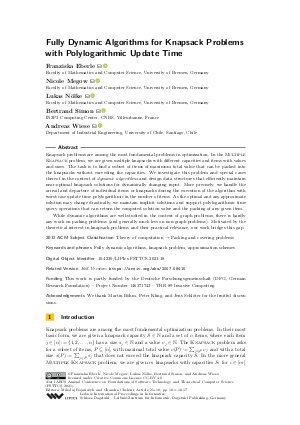LIPIcs.FSTTCS.2021.18.pdf
- Filesize: 0.78 MB
- 17 pages

 Creative Commons Attribution 4.0 International license
Creative Commons Attribution 4.0 International license


































































Feedback for Dagstuhl Publishing